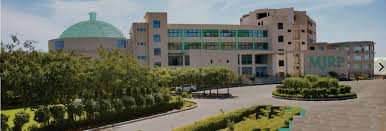A Ph.D. in Industrial Design is an advanced degree that focuses on the application of innovative design solutions to real-world problems. Students in this degree program are expected to possess skills in communication and presentation, visual and spatial awareness, and time management. They should also be good at teamwork and problem solving and be able to meet deadlines. The following are some of the job duties of a Ph.D. in Industrial Design graduate.
A doctoral degree in industrial design provides students with the necessary tools to make discoveries. They will have more freedom to experiment and explore, and ultimately help advance the design profession. This is an excellent opportunity for graduates seeking a career in industrial design. The benefits of a doctoral degree are numerous. The education required for a Ph.D. in this field is recognized worldwide. The career prospects are endless! However, many graduates don't get the opportunity to apply for their Ph.D. in Industrial Design straight out of college.
With the increasing popularity of the field, the focus on materials, craft, and quality products is becoming increasingly important. Craft-centric companies such as BluDot, Heath Ceramics, and IKEA all start with a simple idea and move from there. The typical MID student will have an undergraduate degree in the field. By obtaining their doctorate, graduates will have the freedom to pursue new ideas and explore a variety of fields.
Ph.D. in Industrial Design Eligibility
Candidates who want to take admission in Ph.D. must have a post-graduate degree in Ph.D. in Industrial Design and its relevant discipline with at least 55% marks from a recognized university and must have passed the national level entrance examination or university level entrance examination. National level entrance exams like UGC NET / UGC CSIR NET / GATE / SLET or University entrance exams consist of written tests and personal interviews.
Benefits of a Ph.D. in Industrial Design
The benefits of a Ph.D. in Industrial Design are numerous. Graduates of these programs are active members of their local, national, and international communities. Many of them are involved in professional organizations such as the Society of Graphic Designers of Canada (SGC), the Association of Canadian and American Industrial Designers, and the International Council of Engineering and Technology (IIT). The University environment provides the opportunity for interdisciplinary research and connections, and access to tremendous resources. Those who choose to study abroad should make the most of their opportunities to travel and network abroad.
The classroom environment is designed for students to create innovative and functional designs, and there are many opportunities for collaboration. Students can use the latest design technology in studios and workshops. The school also has a large workshop where students can work with multiple machines, including CNC routers and 3D printers. A computer lab houses industry-standard design software. Additionally, there are iPads for digital design and large format digital printing facilities on campus.
There are many career options for graduates in Industrial Design. These careers are designer-centric and range from the automotive industry to the software industry. You can also work in the Exhibition Design Field, Marketing Department, and Logistics and Supply Chains fields. Once you graduate, you can pursue a Ph.D. in Industrial and Information Technology, which will prepare you for a highly-competitive career in the field of industrial design.
Career and Job Opportunities for a Ph.D. in Industrial Design
After graduating with a Ph.D. in Industrial Design, you can look forward to a wide variety of career possibilities. This degree focuses on developing design solutions that are technically sound and user-friendly. Students also gain knowledge of materials, processes, and computer-aided design. In addition, they will develop skills in hard and soft model making, presentation, and problem-solving. These skills are essential for a successful professional career.
Those who obtain a Ph.D. in Industrial Design are typically employed as industrial designers. Their duties include identifying complex design problems and anticipating production challenges. They also must study target audiences and decide on appropriate visual representations. Many industrial designers also work in the public sector, creating interactive facilities and equipment that enhance the quality of public services. In addition, some postgraduates pursue self-employment or design-based consultancy.
Those who earn a Ph.D. in Industrial Design can enter a variety of careers. For example, they can work in the manufacturing industry as a product designer. These professionals use their creative skills to come up with innovative products. They use computer-aided design software to produce and improve products. They also must be skilled in drawing and using computer software. The salary range for industrial designers is extremely high.
The Future Scope of Ph.D. in Industrial Design
The Ph.D. in Industrial Design program is geared towards students interested in advancing their pedagogical knowledge, research skills, and professional development. This doctoral program will prepare students to become leaders in the teaching and promotion of design in society. The curriculum will give students experience in the research and discourse associated with Design, as well as develop critical thinking skills. The program is available at a variety of institutions, and admission is competitive.
The Ph.D. in Industrial Design program will introduce students to the various fields within this field. The focus of the course is to introduce students to design research capacities and opportunities. The course is taught by academics and professionals who have extensive experience in their chosen fields. The course focuses on developing the creative and technical skills necessary for an exciting career in the field. However, many employers do not hire industrial designers with PhDs, so the employment opportunities are limited.
This is a relatively new program, but its benefits of it are significant. The first thing to remember is that it's not for everyone. For instance, if you've never worked in an industrial design office, chances are you will be working in a smaller company. It's unlikely that many employers would hire you without a degree, but your initial salary will still be lower than most people with PhDs.
Ph.D. Research Program duration
The Ph.D. in Industrial Design course is a minimum of 3 years and a maximum of 5 in duration. This depends on the university offering the course.
Fees for research program for Industrial Design
The average fee for Ph.D. in Industrial Design degree is between INR 50000 and INR 500000.
 5 Years
5 Years
 PhD
PhD
 Research
Research


































 back
back